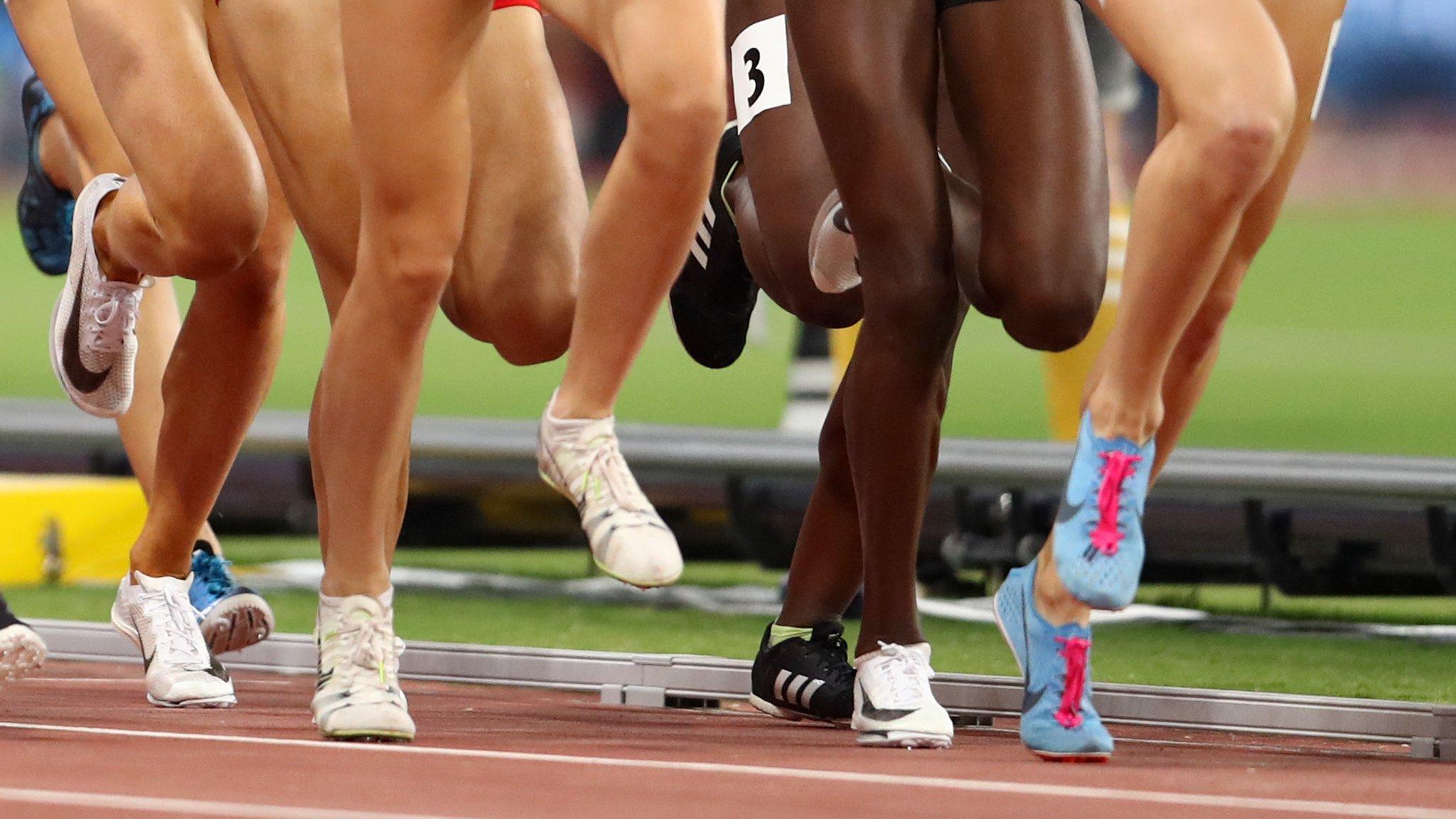Northern Ireland trans rights debate spans decades, papers show
- Published
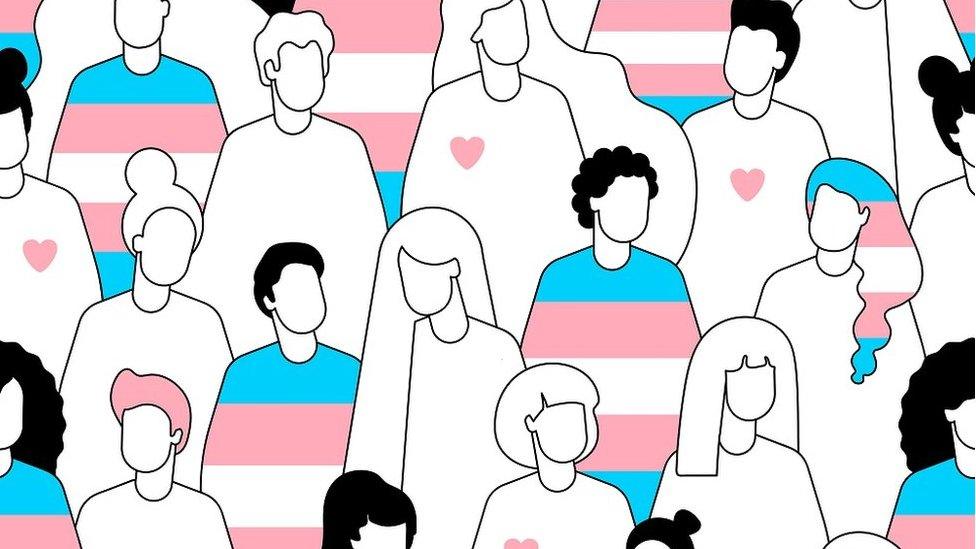
Newly-released papers show correspondence between UK and Stormont government officials on trans issues two decades ago
There were estimated to be between 30 and 150 trans people living in Northern Ireland in the year 2000, according to newly-released government papers.
They include memos on possible law changes affecting transgender people.
Some officials were concerned about issues such as fairness in sport, according to one document - "especially in cases where a man becomes a woman".
Almost a quarter of a century on, some sporting bodies have recently set policies on transgender competitors.
According to the papers released by the Public Record Office of Northern Ireland (Proni), two civil servants represented Northern Ireland on the UK interdepartmental working group on transsexual people.
It was set up in 1999 to consider the need to change the laws on the civil and legal status of trans people.
It also looked at the possible implications for areas like sport, employment and social security.
At the time most of the government documents used the term "transsexual" rather than "transgender", which is mainly used today.
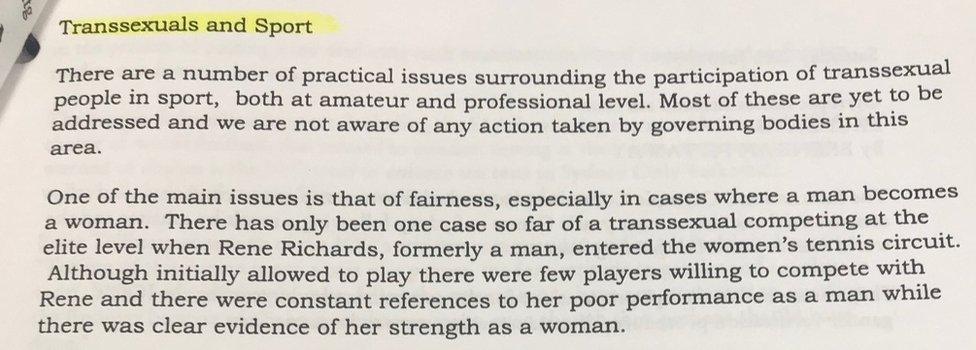
The UK government and Stormont officials were concerned about transgender equality in sport more than 20 years ago
In 1999 trans people could be issued with things like passports, driving licences and medical cards under their new gender identity.
But they could not have their birth certificate changed to reflect their new identity.
A memo to the Office of First and Deputy First Minister (OFMDFM) in 2000 said that "the central issue is whether legal recognition should be given to post gender reassignment for all purposes".
"It is not known how many transsexual people are resident in Northern Ireland," it said.
"There are approximately 5,000 transsexual people throughout the United Kingdom with perhaps 30 to 40 resident in Northern Ireland.
"Gender reassignment surgery is not available in Northern Ireland although counselling and hormonal treatment is available."
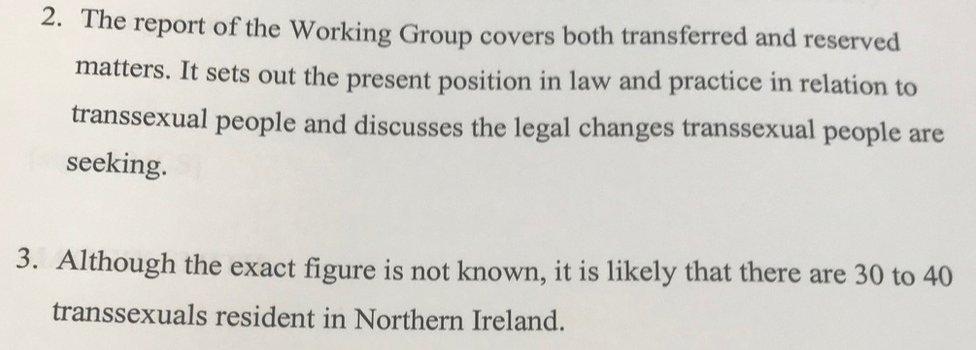
Officials estimated 40 trans people lived in Northern Ireland in 2000
The organisation Press for Change, which advocated for trans people, made a specific submission regarding the trans community in Northern Ireland.
Press for Change estimated that there were around 150 trans people in Northern Ireland in 1999.
"Members of the Northern Ireland Executive and other government policy making units must take seriously their duty of care to the trans people in our community," its submission said.
Full legal recognition
The report of the UK-wide Home-Office led working group was subsequently published in July 2000.
It provided options for law changes rather than final recommendations, though did say the government should consider "full legal recognition" for trans people.
But, according to memos from officials in Stormont's Equality Unit to the Office of the First and Deputy First Minister (OFDFM), then Home Secretary Jack Straw published the report "without public consultation and with minimal responsibility".
However Stormont officials said that trans issues would "affect most, if not all" government departments in Northern Ireland.
"Aspects of employment law, marriage law, insurance law, health, social security, family law, the criminal justice system, sport, education and vocational training would be affected if a decision was made to give full legal recognition to transsexuals post gender-reassignment," one memo said.
However, according to another Stormont document, there had only been two attempts by trans people to change their birth certificate in Northern Ireland by the year 2000.
The Gender Recognition Act (GRA) was later introduced in 2005 under which people in Northern Ireland could change their legal gender.
They need to be at least 18 years old and provide two medical reports, one from a specialist detailing their diagnosis of gender dysphoria and another listing any treatment or surgery they may have had to change their sexual characteristics.
They also must prove they have lived full-time in their acquired gender for at least two years and have to apply to a UK gender recognition panel.
There have been some recent calls for the reform of gender recognition laws in Northern Ireland but also significant wider debate across the UK about the nature of any reform.
It is still not clear exactly how many trans people live in Northern Ireland.
However at the end of 2022 almost 700 people were waiting to be seen by Northern Ireland's gender identity clinic.
Related topics
- Published16 December 2022

- Published13 December 2022
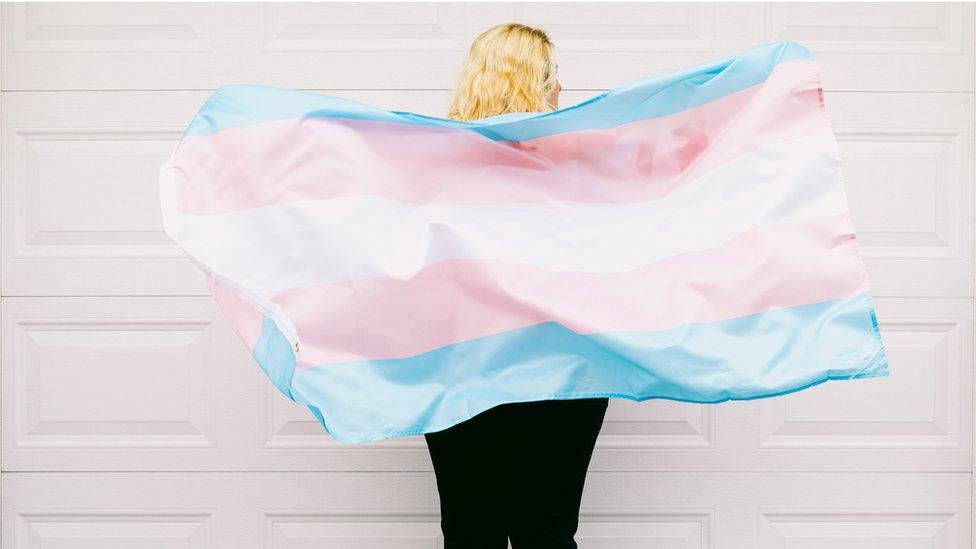
- Attribution
- Published23 March 2023
